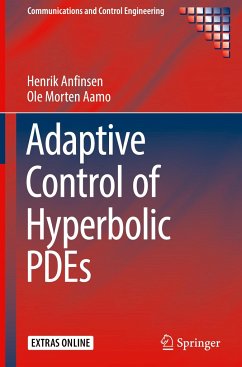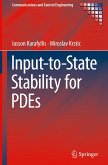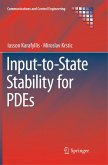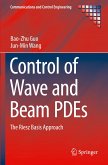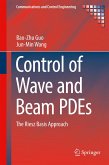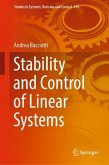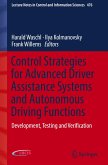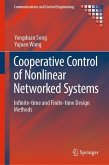Adaptive Control of Linear Hyperbolic PDEs provides a comprehensive treatment of adaptive control of linear hyperbolic systems, using the backstepping method. It develops adaptive control strategies for different combinations of measurements and actuators, as well as for a range of different combinations of parameter uncertainty. The book treats boundary control of systems of hyperbolic partial differential equations (PDEs) with uncertain parameters.
The authors develop designs for single equations, as well as any number of coupled equations. The designs are accompanied by mathematical proofs, which allow the reader to gain insight into the technical challenges associated with adaptive control of hyperbolic PDEs, and to get an overview of problems that are still open for further research. Although stabilization of unstable systems by boundary control and boundary sensing are the particular focus, state-feedback designs are also presented. The book alsoincludes simulation examples with implementational details and graphical displays, to give readers an insight into the performance of the proposed control algorithms, as well as the computational details involved. A library of MATLAB® code supplies ready-to-use implementations of the control and estimation algorithms developed in the book, allowing readers to tailor controllers for cases of their particular interest with little effort. These implementations can be used for many different applications, including pipe flows, traffic flow, electrical power lines, and more.
Adaptive Control of Linear Hyperbolic PDEs is of value to researchers and practitioners in applied mathematics, engineering and physics; it contains a rich set of adaptive control designs, including mathematical proofs and simulation demonstrations. The book is also of interest to students looking to expand their knowledge of hyperbolic PDEs.
The authors develop designs for single equations, as well as any number of coupled equations. The designs are accompanied by mathematical proofs, which allow the reader to gain insight into the technical challenges associated with adaptive control of hyperbolic PDEs, and to get an overview of problems that are still open for further research. Although stabilization of unstable systems by boundary control and boundary sensing are the particular focus, state-feedback designs are also presented. The book alsoincludes simulation examples with implementational details and graphical displays, to give readers an insight into the performance of the proposed control algorithms, as well as the computational details involved. A library of MATLAB® code supplies ready-to-use implementations of the control and estimation algorithms developed in the book, allowing readers to tailor controllers for cases of their particular interest with little effort. These implementations can be used for many different applications, including pipe flows, traffic flow, electrical power lines, and more.
Adaptive Control of Linear Hyperbolic PDEs is of value to researchers and practitioners in applied mathematics, engineering and physics; it contains a rich set of adaptive control designs, including mathematical proofs and simulation demonstrations. The book is also of interest to students looking to expand their knowledge of hyperbolic PDEs.

